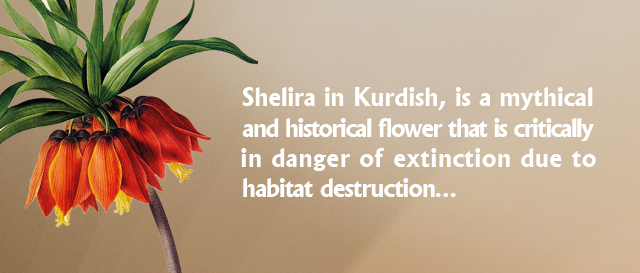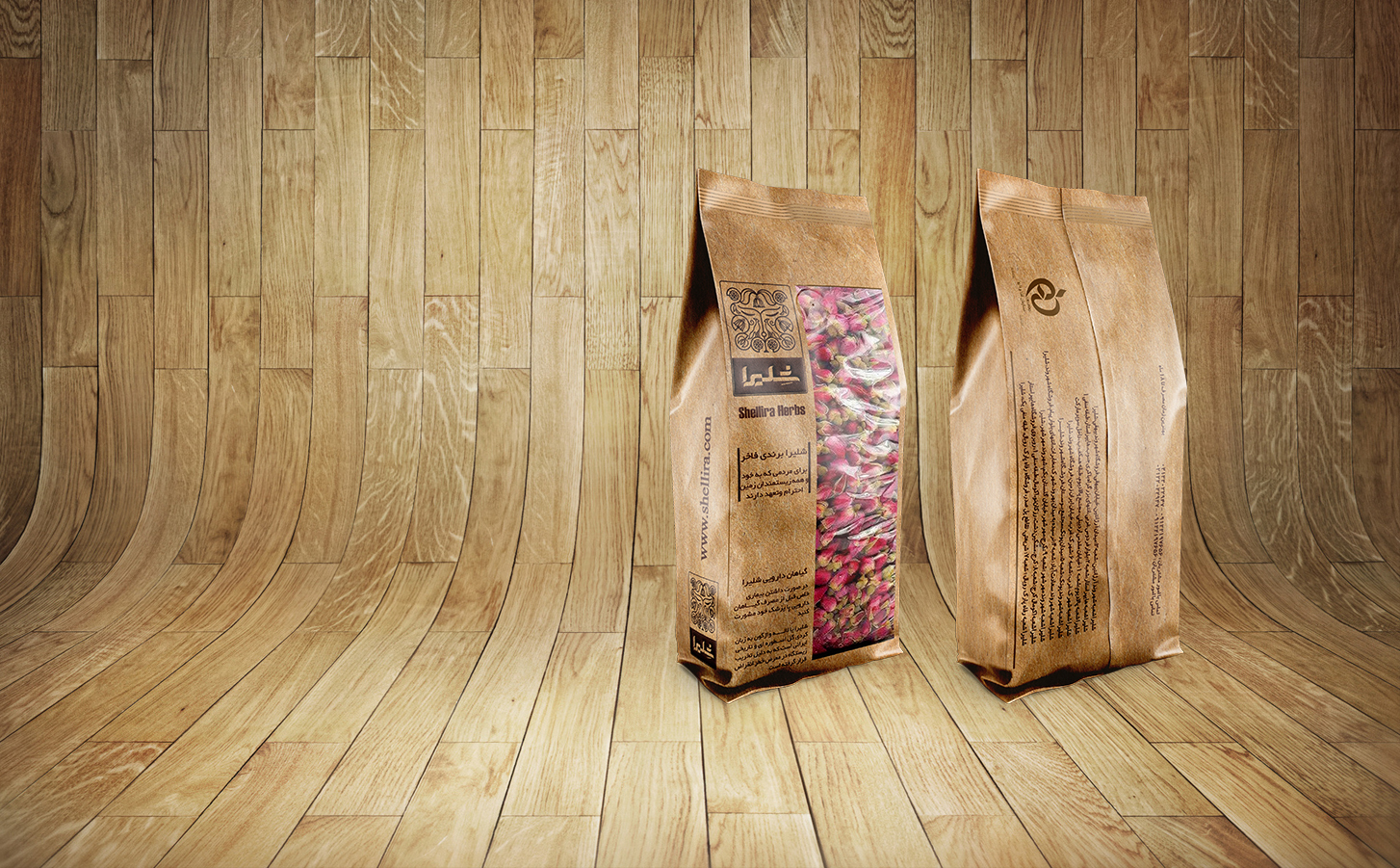Our Mission
Sarah Naqshbandi - CEO
"Shelira" tries to introduce the forgotten plant species and organic products of the country and to remind their forgotten medicinal capacities and properties. Despite 6 to 8 thousand species of plant-medicinal plants in Iran, people neglect this natural and cultural heritage and, unlike advanced societies, resort to chemical drugs with every small ailment. We believe, according to the great Ibn Sina, that he said: "Your food is your medicine" and we believe that turning to this valuable heritage again, along with helping the health of the people of the society, can be tied to the economy and thus cultivate and revive it. Species increase their chances of survival and conservation. Therefore, we started processing and packing medicinal plants and spices to the highest quality available in the market


Identifying
Today, on the one hand, as people become more sensitive to their health and try to change their lifestyle as a social phenomenon, and on the other hand, we are faced with a wave of data in this field, including workshops and various messages on social networks. If we do not use the correct scientific standards and teachings in the field of traditional and complementary medicine, many of these spaces will be disrupted, abused and bad things will happen to people's health. Shelira uses all her care to present the information given only on the basis of authoritative scientific references.
Frauds
Familiarity with fraud Fraud in high-consumption products is a common problem that has plagued inspectors and government companies around the world. In these cases, fraudsters not only cause financial harm to consumers, but can also endanger the lives of patients who need to be treated properly. Drug fraud is common in many countries. Drug fraud is the addition of any other substance. There are several types of drug fraud:
1- Posting drugs, corruption, decomposing, mixing, and exchanging: Today, in the drug trade, posted, spoiled or decomposed drugs are seen more than any other type of fraud.
2- Inferiority of the drug substance: A drug substance that can not meet the standard specifications is considered counterfeit. Milk sold in commercial quantities should not contain less than 3% fat. Now, if milk has four percent fat and water is added to make it three percent, then such milk is considered cheated. But if the fat of such milk is completely separated and enough of it is added to make it three percent, such milk is not considered as cheated.
Spoliage
Corruption of drugs is related to the incompatibility of drugs with standard conditions, so that due to the corruption of drugs due to the growth of fungi and bacteria can not be used by humans. Numerous examples have been found in this regard, especially in the products of the food industry such as fruits, vegetables, meat, fish and seafood. All drugs that are not suitable for use by humans or animals are legally considered counterfeit.
Deterioration
Decomposition of drugs is in cases where the value and effect of a drug is lost due to distillation, extraction, obsolescence, moisture, heat, the effects of fungi, insects, etc., for example, extraction of part of clove essential oil by distillation (used cloves) , Also separating a part of crushed flaxseed oil (flaxseed pulp), as well as tallow in which the fats are partially decomposed (sharpened tallow), underground onion powder which due to moisture absorption in the form of hard mass In addition, coffee beans that have lost significant amounts of caffeine due to roasting, mushroom-infected ergo, and worm-eaten robar are examples of the decomposition of drugs.
Admixture
the interaction of two or more drugs by accident or recklessness. If the mixing was done intentionally for cheating, this is called insertion. For example, along with the bush leaf, there is usually a certain amount of stem, or there is usually some soil stuck to the salsparil root, which is considered mixing, but if the amount of mixed material is more than standard. Forgiveness is legally considered fraud.
Substitution
Substitution is observed in cases where a completely different object is used or sold instead of the desired object. Legally, any substitution or substitution of drugs is considered fraudulent. For example, selling cottonseed oil instead of olive oil, and American saffron instead of Iranian saffron is a substitute.
Fraud in food, spices and drugs has existed since the beginning of the nineteenth century, but the number of such frauds has gradually increased. By referring to reputable pharmaceutical magazines from 1850 to 1910, it is observed that 50% of the pharmaceutical powders available in the commercial market have been counterfeited. The spice trade is far worse, and this has led large pharmaceutical companies to force legal authorities to set standards to ensure the purity of drugs.
Some herbal medicine retailers may violate pharmacopoeia-based medicinal plants or reputable herbal sources for the following reasons:
One permissible motive may be to replace a particular plant species that is not available with a closely related species.
Another method that is less desirable and honest is to deliberately and unknowingly replace a plant species with a cheaper or better one. A few years ago, the Belgian Consumers' Organization reported that most peppermint plants and peppermint capsules did not contain Mentha piperita at all, but contained much cheaper species of M. crispa.
Negligence in the collection, storage or distribution of medicinal plant materials may result in accidental replacement and mixing with toxic plant species or contaminants. Incompetent or careless sellers of herbal medicines often fail to recognize the importance of this issue in a timely manner.
Examples frauds
In many plant frauds, direct aspects of toxicology are unlikely or unknown to the consumer. As the following examples show, reports that occasionally appear in journals indicate a growing risk of contamination or the replacement and mixing of herbal medicines with poisonous plants.
In the case of the ginseng herbal product on the US market, there have been reports of deliberate fraud in replacing it with Rawolfia serpentina and Mandragora officinarum, which replace the well-known toxic alkaloids reserpine and belladonna, respectively.
The poisonous seeds of Conium maculatum are sometimes found between the seeds of the anise plant and the roots of the Veratrum album plant, sometimes mistakenly labeled as Primula roots. Conium seeds cause known known nicotine-like poisoning due to coniine and similar alkaloids. Veratrum alkaloids can also cause symptoms of severe poisoning, such as decreased heart rate and blood pressure.
The fruit of (Illicium verum) may be replaced by a relative of the Japanese anise (Illicium anisatum), the latter being much more dangerous than the first due to the toxic terpene dilactones neoanisatin and anisatin.
Atropa belladonna root is a substitute for marshmallow root mixed with poppy root and can be used as a cheat to prepare poppy root. Baba Adam root tea and other herbal medicinal products that are naturally free of atropine-like substances and compounds have been associated with side effects such as delirium and symptoms of anticholinergic poisoning for many years.


